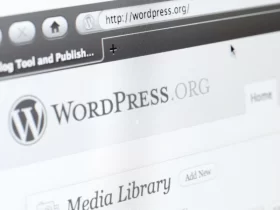We begin accumulating emotional wounds in childhood. Imagine you live on a planet where all people are affected by the same disease. Their skin is covered in open, painful, infected wounds. The disease starts when people are around three or four years old, and everyone believes that having it is completely normal.
Sound awful? Well, this situation is actually the current state of humanity. Most people’s skin isn’t covered in wounds, of course. But the human mind, which Don Miguel refers to as the emotional body, is full of wounds. And those wounds are infected by an emotional poison we call fear. All other negative emotions – anger, sadness, envy, and so on – stem from fear.
When children are born, they’re free of emotional poison, but it doesn’t take long to start accumulating.
The key message here is: We begin accumulating emotional wounds in childhood.
Our emotional wounds start to appear when we’re around three or four years old. Before that, we’re completely healthy. Two and three-year-old children are unafraid to express love – most of their time is spent laughing and playing. Of course, when they experience pain or something bad happens to them, they react. But it’s usually not long before they return to playing.
This way of being is actually the normal, healthy state of the human mind. But as children grow older, they begin to learn from adults who have long been infected by emotional poison. They learn to fear punishment and seek reward. They fear not being accepted, or they fear that who they are isn’t good enough. These fears are all emotional poison.
As a result of these feelings, children begin to create images of themselves that fit what they think other people want. They create images to project at school, at home, and eventually at work. Then, when one of these images is inevitably challenged, they feel immense pain.
For instance, picture a teenage boy whose self image includes the notion that he’s very intelligent. One day, he participates in a debate – but another student outperforms him. Suddenly, the boy begins to feel stupid and worthless. He feels pain because there’s now a discrepancy between his internal image of himself and the image he’s trying to project.
Each of us develops these relationships between ourselves and the world in childhood – and then the rest of our lives are ruled by them, causing us to suffer.
Emotional poison causes people to have poor and abusive relationships.
Think back to your childhood for a moment. You’re two or three years old, playing in your living room. You spot your dad’s guitar, so you pick it up and start playing with it.
Then your dad gets home and sees you. He’s had a bad day at work and gets angry at you for touching the guitar. He even spanks you. Remember emotional wounds.
From your perspective, the guitar was just a toy, and your dad has done you a great injustice. He was someone you trusted and expected to protect you, but now you see that he can hurt you. Without realizing it, you start to fear your father a little bit. Over time, you learn that it isn’t safe to express yourself and your desires fully, and you become shy.
Here’s the key message: Emotional wounds or emotional poison causes people to have poor and abusive relationships.
As we get older, we continue to accumulate emotional poison in response to things we consider injustices. Then, once we’re full of that emotional poison, we feel the need to release it. And how do we do that? Usually, by trying to pass along our poison to someone else.
Consider a husband and wife. The wife is holding on to a lot of emotional poison from an injustice she feels her husband has done her. When she next faces her husband, she immediately begins attacking him. She shouts that he’s terrible, stupid, unfair. He gets angry, and she starts to feel better because she’s passed along her poison. But now the husband has his wife’s poison in addition to his own. The two keep transferring it back and forth – and, over time, the amount of emotional poison grows.
Sometimes, this desire to transfer emotional poison results in abusive relationships. Perhaps a person has received his emotional poison from someone much more powerful than he is, so he can’t easily transfer it back. He then searches for someone he can transfer it to – someone weaker or more defenseless.
Abusive people’s emotional bodies are sick – infected with emotional poison or emotional wound – which causes them to lash out. We can’t rid other people of their emotional poison, but we can start to overcome our own by being aware of the problem. Acknowledge the poison inside of you and all around you. That’s all it takes.
Your happiness can’t depend on other people.
There once was a man who didn’t believe in love. He went around preaching his idea that love is little more than a drug – it can make you feel amazing, but it’s also addictive. To secure your daily doses, you become controlling and possessive of the person who provides them.
One day, the man who didn’t believe in love was walking in the park. He came across a woman sitting and crying. She told him she was upset because love didn’t exist. The man understood her troubles perfectly and began to comfort her. They quickly became best friends.
The man and the woman were completely happy whenever they were together. They were never envious or jealous of one another; there was no possessiveness, and neither one felt responsible for the other.
The key message is this: Your happiness can’t depend on other people.
One night, the man experienced what he thought was a wonderful miracle. He was gazing at the stars, when, suddenly, the most beautiful one came down and dropped into his hands. As he held it, the star merged with his body.
Immediately, he went to the woman and put the star in her hands to prove his love for her. But the woman felt a moment of doubt. She dropped the star; it fell and shattered into pieces. Now, both the man and the woman are far away from each other. The man once again swears that love doesn’t exist, and the woman weeps over the star that dropped from her hands.
Think about what happened to the couple. Who really made the mistake? It wasn’t the woman – rather, it was the man, who believed he could give the woman his star. The star represented his happiness, and giving it to her signified his attempt to make her responsible for his happiness.
In real life, we don’t give each other stars – but we do exchange wedding rings. In doing so, we signify our expectation that our partner will make us happy, and vice versa. But this is an impossible dream because we can never completely know our partner’s mind, expectations, or dreams. And this means that, sooner or later, our partner will disappoint us and break our happiness.
In reality, only you can be responsible for your happiness. Let’s explore this idea a bit more in the next blink.
Every relationship not infected with emotional wounds follows either the track of love or the track of fear.
Every relationship you have is between you and one other person. And each of you is responsible for one half of the relationship.
However, all too often, people act as if they’re responsible for the other person’s half in addition to their own. They try to control their partners’ behavior, telling them to do this or not do that. But if you’re participating in this war of control, you don’t actually love your partner. You’re just being selfish – and fear is dictating your actions.
In fact, we can think about our relationships as traveling down one of two tracks: the track of love or the track of fear. Most people’s relationships exist on the track of fear; instead, we need to choose the track of love consciously.
The key message here is: Every relationship follows either the track of love or the track of fear.
What characterizes the track of fear? Two major things are obligations and expectations.
On the track of fear, everything is done out of a sense of obligation. But whenever we feel we have to do something, we begin to resent and resist that thing. Ultimately, this causes us to suffer – and then we try to escape it.
At the same time, we also have expectations of other people when we’re on the track of fear. Then, when those people shirk their obligations, we feel pain. We think it’s unfair, and we start to blame them. So, as you can see, expectations can only lead to suffering.
With the track of love, on the other hand, there are no obligations or expectations at all. We only do the things we want to do – and the same goes for other people. You don’t see another person’s actions – or inactions – as a personal attack on you. And, as a result, they can’t cause you pain.
In order to master a relationship, you must be aware of these two tracks. With that awareness, you’ll be able to catch yourself when you’re on the track of fear – and shift onto the track of love.
By practicing that shift again and again, you’ll be able to master your half of every relationship. You’ll no longer feel the need to control your partner because you’ll understand that you’re only responsible for your own half. You’ll be free to share, enjoy, and create together.






